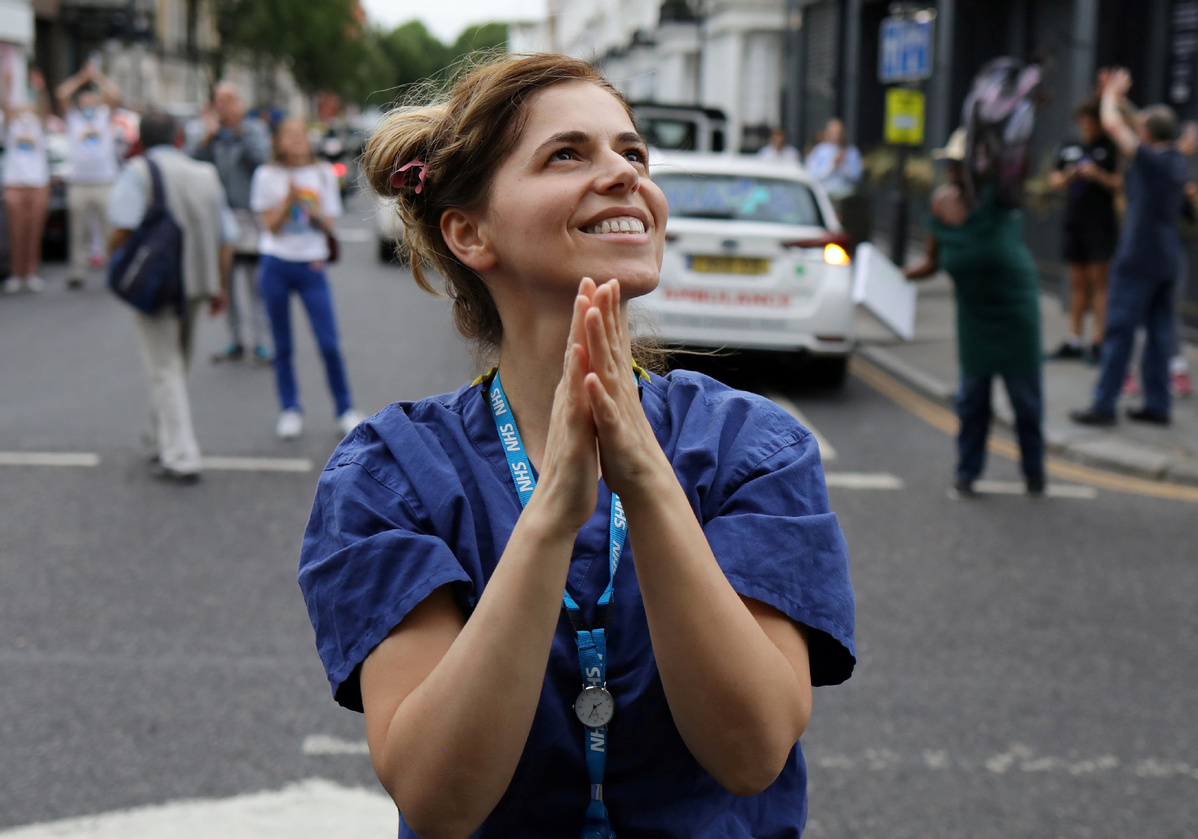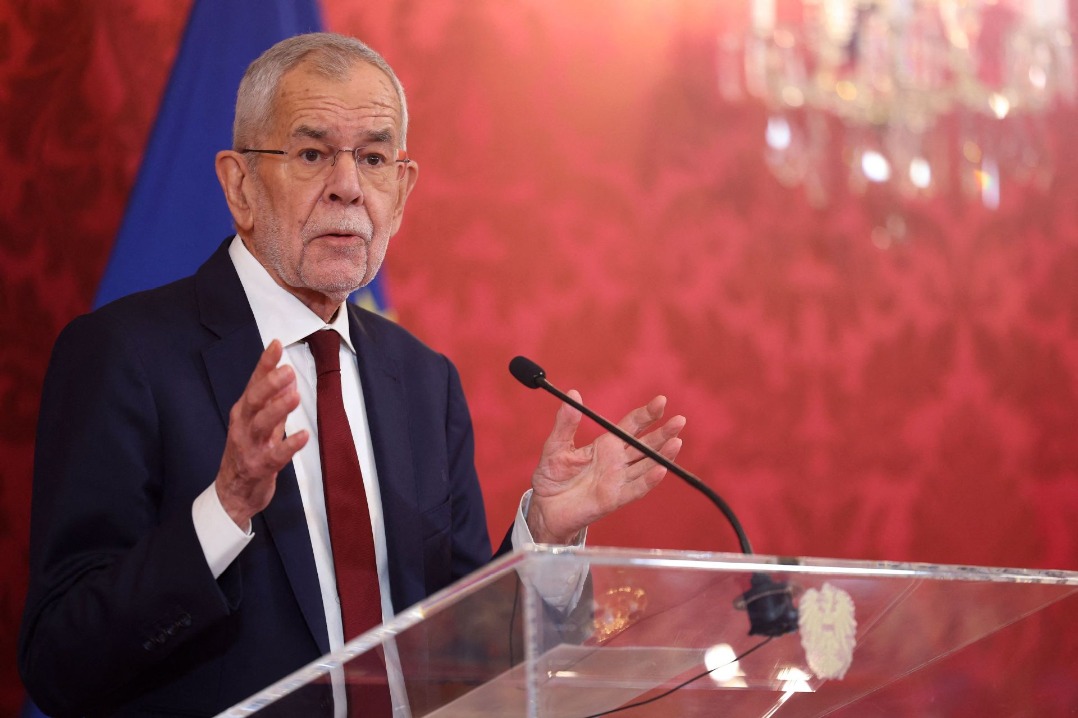Health workers will be first for antibody tests


Workers in Britain's National Health Service, or NHS, and the care sector will be given priority when novel coronavirus antibody tests become available, it has been announced, after the government reached an agreement with pharmaceutical company Roche.
The tests, which show if someone has had COVID-19, will be made "free for people who need them "with health and care workers being first in line. However, NHS England's National Medical Director Stephen Powis said the test does not necessarily show if someone who has antibodies has developed immunity.
Speaking at Thursday's media briefing, Health Secretary Matt Hancock said 10 million tests will be made available, for free on the NHS, over the coming months.
"Real progress" is being made, he added, with more than 3 million novel coronavirus tests having also been carried out, and he said the country is "in a position" to start moving to Level 3 of its five-level warning system.
It has also been announced that the fee required for foreign health and social care workers to use NHS services will be scrapped.
Just 24 hours earlier, Prime Minister Boris Johnson had called it "the right way forward" to boost NHS funds but after widespread criticism, it has been dropped.
Labour leader Keir Starmer said it was "a victory for common decency and the right thing to do".
"We cannot clap our carers one day and then charge them to use our NHS the next," he added.
The NHS is reportedly preparing to double the number of critical care beds in London in anticipation of a second wave of novel coronavirus infections, allowing the service to manage them without needing to cancel other treatments.
When the outbreak first began, emergency facilities known as Nightingale Hospitals were set up around the country. Health service chiefs want to avoid resorting to such measures in the future so all regions have been asked to make plans.
London's is the most advanced, and the Financial Times reported the number of critical care beds will double to 1,650, with a plan for additional "surge" beds to be used at short notice if needed.
However, the program will place further strain on staffing. There are more than 40,000 nursing vacancies across the country, and for every additional 100 critical care beds, around 33 consultants, 28 doctors and 385 nurses will be required.
Meanwhile, the chief executive of the NHS Confederation has warned delays to a track and trace system could be serious.
On Wednesday, Johnson promised a "world-beating" contact tracing system would be in place in England from June, with the system used in South Korea, which includes data such as phone GPS and credit card transactions, cited as an example.
But Sky News reported there is concern over how people in the United Kingdom found to have the virus can be quarantined, and the confederation said lockdown should not be eased until such a system is in place.
"We are absolutely clear that contact tracing is the right thing to do, it is absolutely critical, it has got to be in place to prevent any notion of a second surge if the lockdown is being further released," Niall Dixon told the BBC. But the government was acting, he said, "quite late in the day (and) we haven't yet seen the detail".
Scotland's First Minister Nicola Sturgeon has announced the gradual easing of lockdown. Previously she had encouraged people to abide by the original message of "Stay at Home, Save Lives" after it was replaced by the less precise "Stay Alert" slogan, but has now announced a four-stage "route map" out of lockdown.
The rules will be reviewed every three weeks and she advised that they were "not set in stone" but from May 28, outdoor industries such as agriculture and construction can resume, and non-contact sports will be permitted.
As Italy continues its re-emergence, Prime Minister Giuseppe Conte has urged people to exercise caution or risk a second wave of infections.
"We can say that the worst is behind us," he told members of Parliament. "We cannot stop to wait for a vaccine, otherwise we would find ourselves with an irreparably compromised society and production system."
He encouraged Italians to continue to abide by distancing rules.
"In this phase, more than ever, (you must have) respect for safety distances and where necessary the use of masks remains fundamental," he said. "It is not the time for parties, nightlife, and gatherings."
In the Netherlands, the government said it has found evidence to suggest a worker on a mink farm in the county has contracted a strain of COVID-19 from an animal.
Agriculture Minister Carola Schouten sent a letter saying it was "likely" that there had been animal to human infection.
"These new research results have a major impact on the owners, families and employees of mink companies as well as on the local communities," she wrote.
Cases among the semi-aquatic carnivorous mammals have been reported before, but this is the first indication of a possible transmission.
As a consequence of this latest incident, tighter restrictions are being introduced, with animal and manure transport banned, and protective clothing now required, but the government said the risk of transmission remained "negligible".































